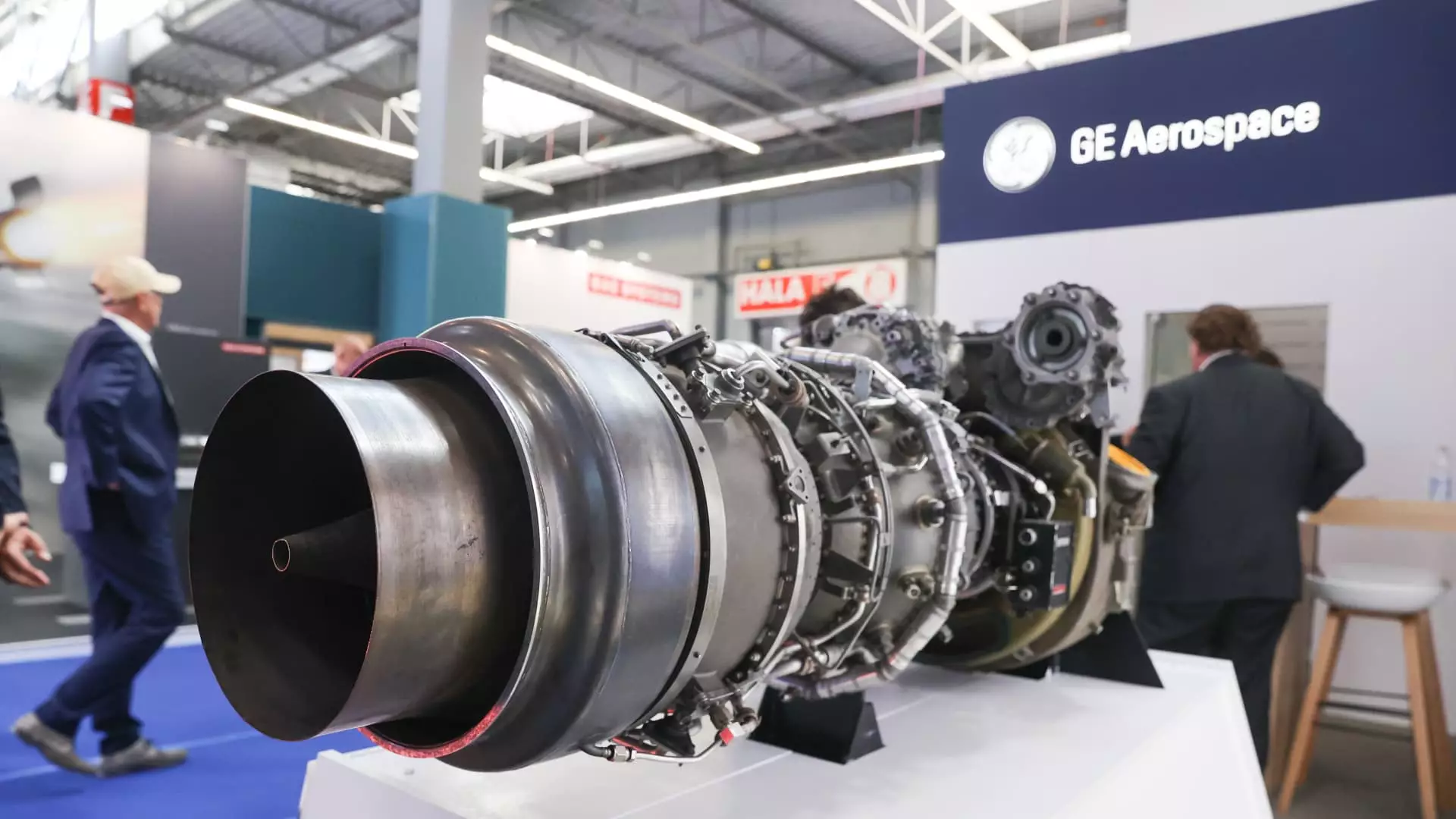GE Aerospace: A Bright Horizon Amid Boeing’s Struggles

As the aviation industry navigates tumultuous waters, GE Aerospace emerges as a strong contender poised for success while its chief rival, Boeing, grapples with ongoing manufacturing challenges. Analysts, particularly Chris Smith of Artisan Partners, highlight GE’s unique positioning within the sector, underscoring its dominance with the innovative leap engine. This engine is set to standardize across new narrow-body aircraft and may command over 80% of the market in the coming decade. Such integration not only strengthens GE’s market presence but also reflects a significant shift in the aerospace landscape, where reliability and efficiency are paramount.
Boeing has faced mounting scrutiny following its well-publicized issues, most notably the January incident involving the 737 Max 9. Delivery delays stemming from this event have forced airlines to extend the service life of older planes, which paradoxically fuels demand for GE’s engines, as operators seek alternatives that promise enhanced performance and safety. Boeing’s struggles are compounded by a second-quarter report that revealed a wider-than-expected loss and disappointing revenue figures, triggering concerns about its long-term viability. In stark contrast, GE’s shares surged by an impressive 70% in 2024, presenting a clear divergence in fortunes between the two aerospace giants.
The broader market context also paints an optimistic picture for aerospace and defense stocks. With geopolitical tensions on the rise, investment in defense and aerospace has seen a notable uptick. The iShares U.S. Aerospace & Defense ETF has risen by approximately 16% in early 2024. Moreover, GE’s performance has been bolstered by Smith’s assertion that the company stands to gain from a revitalization of U.S. manufacturing. This transition away from global supply chains towards local production underscores a pivotal shift that not only favors GE but also enhances national economic resilience.
In addition to GE, Smith identifies TransDigm, a key player in aircraft components, as another potential beneficiary of the current market dynamics. As airlines recalibrate their fleets in response to Boeing’s setbacks, companies like TransDigm could experience proportional growth owing to their vital role in maintaining aircraft efficiency and performance. This multi-faceted recovery narrative surrounding GE and its peers indicates a broader renaissance in aerospace manufacturing, fueled by both innovation and strategic realignments within the industry.
The favorable outlook for GE Aerospace amidst Boeing’s hurdles underscores a transformative period within the aerospace sector. As GE leverages its technological advancements and capitalizes on the increasing demand for domestic manufacturing, it is uniquely positioned to navigate and thrive in this shifting landscape. While Boeing’s troubles present challenges, they also create avenues for competitors to emerge stronger, ensuring that the future of aerospace may well be defined by resilience and innovation.





